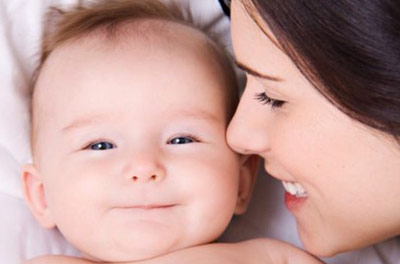|
 The fashion for having children later in life could lead to women becoming more fertile in their 40s and beyond, scientists have suggested. |
|
The fashion for having children later in life could lead to women becoming more fertile in their 40s and beyond, scientists have suggested. As many women wait until they are older to give birth, only those with longer lasting fertility genes will be successful. That means the average length of fertility will grow as their genes will be passed on to their children. The study from the University of Sheffield shows that previously women would marry early and if widowed were too old to remarry thus favouring early childbirth in women. But today's reluctance to settle down and reproduce until later in life could lead to fertility beginning to favour older women. The researchers studied marriage patterns to trace the survival and marriage histories of 1,591 women. Using 18th and 19th century Finnish records – a time when almost everyone got married and divorce was strictly forbidden. They found that women aged 30 to 35 were the most likely to be married. Those that wed wealthy husbands were married at a younger age but to relatively older men, meaning family sizes were bigger but with an increased risk of widowhood. The researchers say that this high chance of widowhood, coupled with low remarriage prospects for older widows with children, limited the percentage of women in the population with the opportunity to reproduce at older ages. Duncan Gillespie, from the university's Department of Animal and Plant Sciences said that in today's society however, women do not start childbearing until an older age as marriage is often delayed. He said: "As a result of this, the natural selection maintaining young-age fertility might weaken and the relative strength of natural selection on old-age fertility could increase, something that could potentially lead to improvements in old-age fertility over many generations.” (Read by Nelly Min. Nelly Min is a journalist at the China Daily Web site.) (Agencies) |
科学家指出,现在的晚育趋势将让未来女性40岁以后的生育能力增强。 许多女性会等到年龄很大时才生育,而只有那些带有更持久的繁殖基因的女性才会成功晚育。 这意味着生育能力持续的平均时间会随着她们的基因遗传给下一代而变长。 谢菲尔德大学的研究显示,以往女性会早早结婚,如果丈夫死了,她们也会因为年纪太大而无法再嫁,因此以前的女性会更多地早育。 不过现在的女性都不愿意早早安定下来,想晚一点再生育,这会使年纪较大的女性的生育能力也开始增强。 研究者追踪调查了1591位女性的生命史和婚史,研究了她们的婚姻模式。 研究数据来自19世纪和20世纪期间芬兰人的记录,在这个年代几乎所有人都结婚,离婚是被严格禁止的。 他们发现年龄在30岁到35岁之间的女性最有可能结婚。那些嫁给有钱人的女性结婚时间更早,不过丈夫的年纪相对较大,这意味着家庭人数更多,但是成为寡妇的几率也增加了。 研究者说女性成为寡妇的高几率,加上带着孩子的高龄寡妇再婚可能性很低,这使高龄产妇在人口中所占的比例受到限制。 来自谢菲尔德大学的动植物科学系的邓肯•吉莱斯皮说,然而,在今天的社会,因为结婚时间通常被推迟,所以女性到年纪较大时才生育。 他说:“因此,年轻生育的自然选择规律会减弱,而高龄生育的自然选择规律则会相对增强,这可能会导致未来很多代人的高龄生育能力增强。” 相关阅读 (中国日报网英语点津 陈丹妮) |
